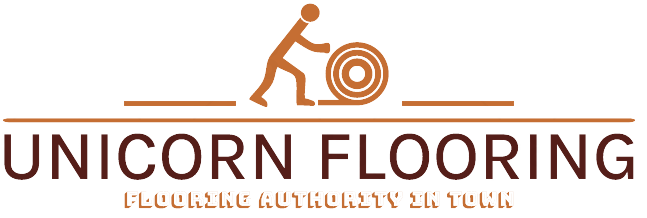Production Area Flooring in Pakistan
In every industrial facility, the production area is the heart of operations — where raw materials are transformed into finished goods. Whether it’s a food processing plant, pharmaceutical unit, textile mill, or electronics factory, one critical element that often goes unnoticed is production area flooring.
The right flooring system ensures safety, durability, hygiene, and performance, directly impacting productivity and long-term maintenance costs. In Pakistan, where industries are rapidly modernizing, choosing the right flooring solution has become an essential part of facility planning.
This guide explores everything you need to know about production area flooring in Pakistan — including types, materials, benefits, cost factors, and installation tips.
Why Flooring Matters in Production Areas?
Production areas face extreme conditions:
- Constant foot and forklift traffic
- Exposure to chemicals, oils, and cleaning agents
- Heavy machinery vibration and impact
- Temperature changes and moisture
If the flooring isn’t designed for industrial-grade use, it can quickly deteriorate — leading to cracks, surface damage, contamination, and safety hazards.
High-performance Flooring ensures:
➡ Long-term durability
➡ Easy cleaning and maintenance
➡ Slip and chemical resistance
➡ Hygienic and seamless surface
➡ Compliance with local and international safety standards
Types of Production Area Flooring in Pakistan
Let’s explore the most commonly used flooring types for industrial and manufacturing zones across Pakistan:
1. Epoxy Flooring
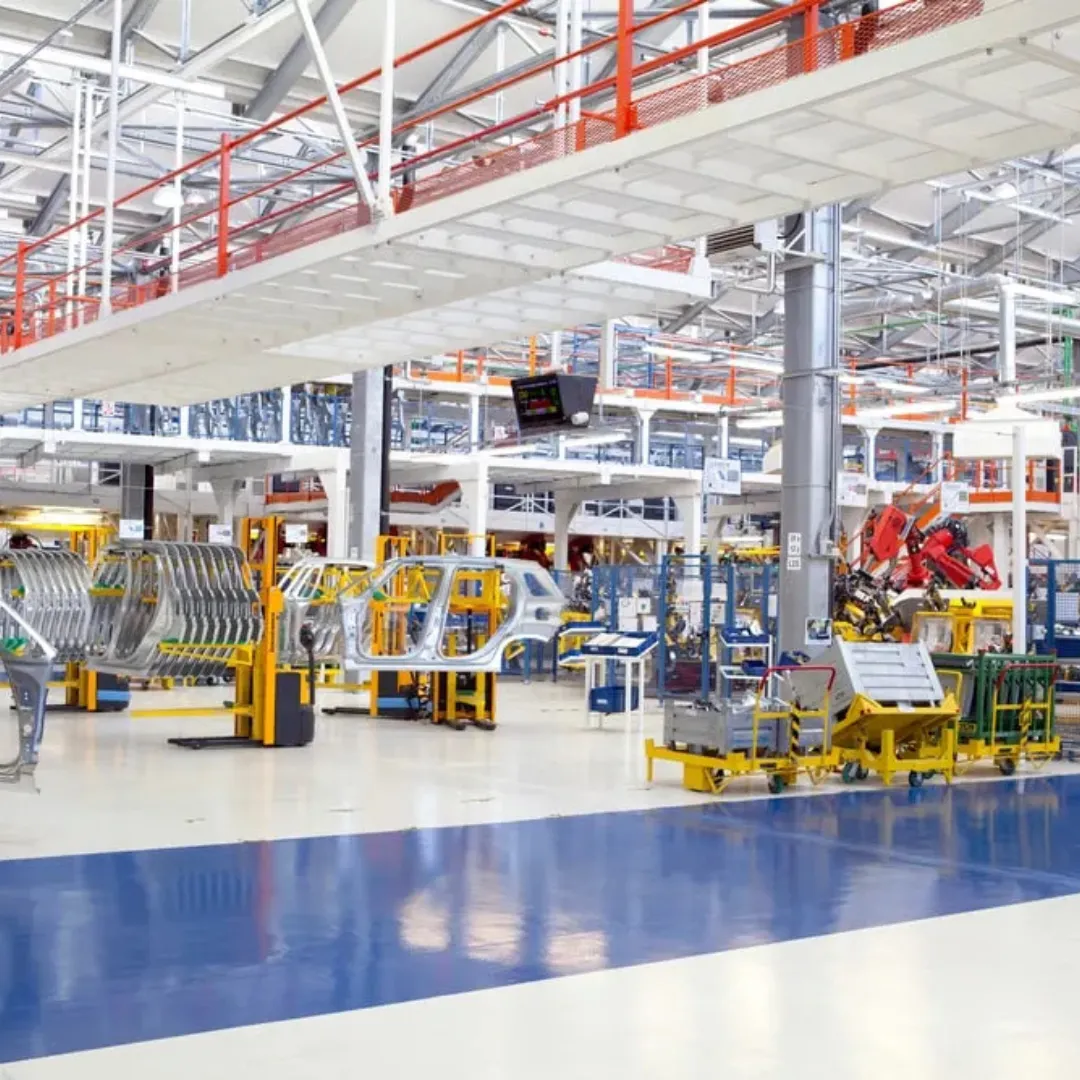
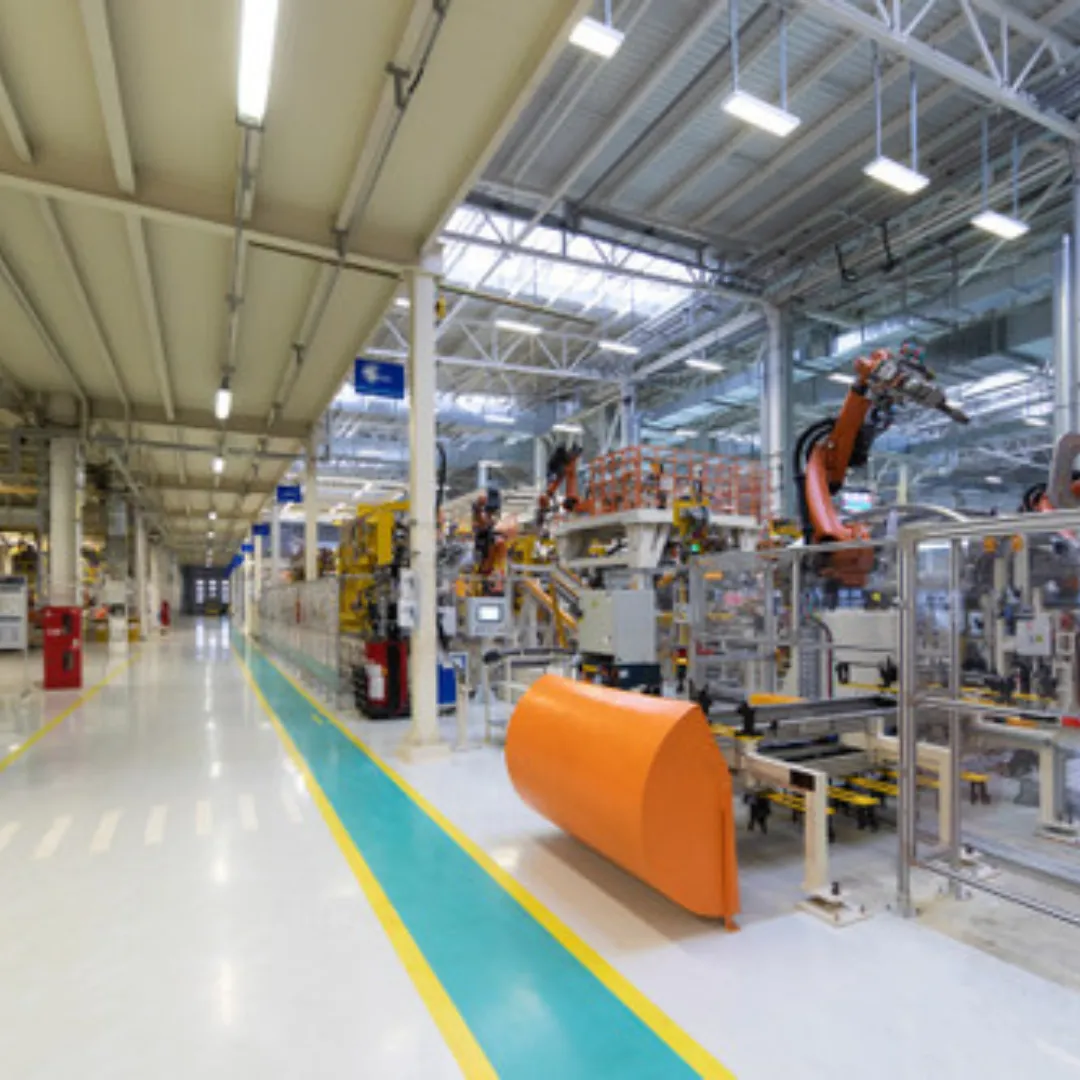
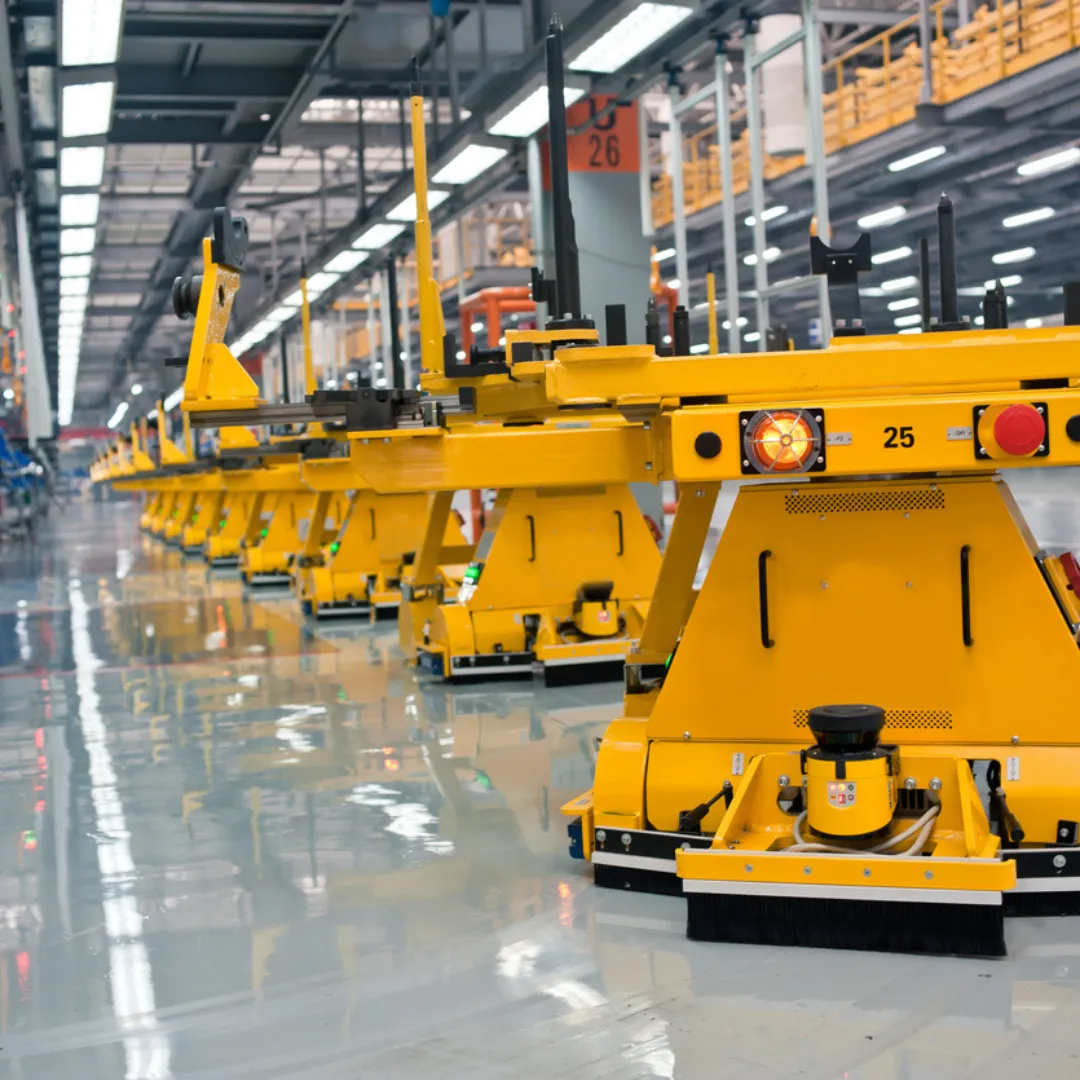
Epoxy flooring is the most popular choice for production areas in Pakistan due to its strength, smooth finish, and resistance to chemicals.
Key Features
- Seamless and hygienic surface
- Resistant to chemicals, oil, and grease
- Easy to clean and maintain
- Can be made anti-slip or anti-static
- Available in matte, glossy, or colored finishes
Applications
Food factories, pharmaceutical plants, electronics assembly lines, automobile parts manufacturing.
Cost
PKR 550 – 1,200 per sq. ft. (depending on layer thickness and brand).
2. PU (Polyurethane) Flooring
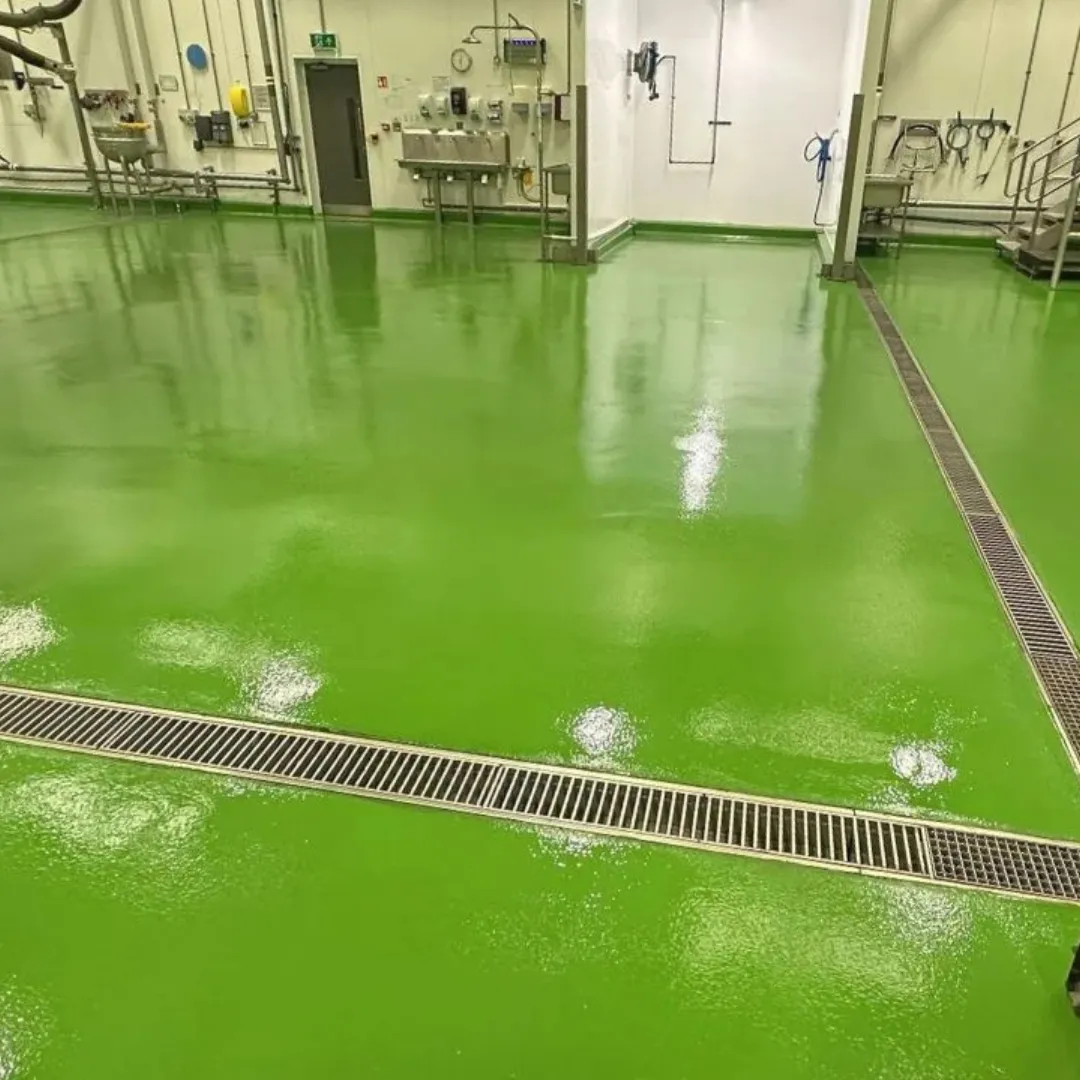

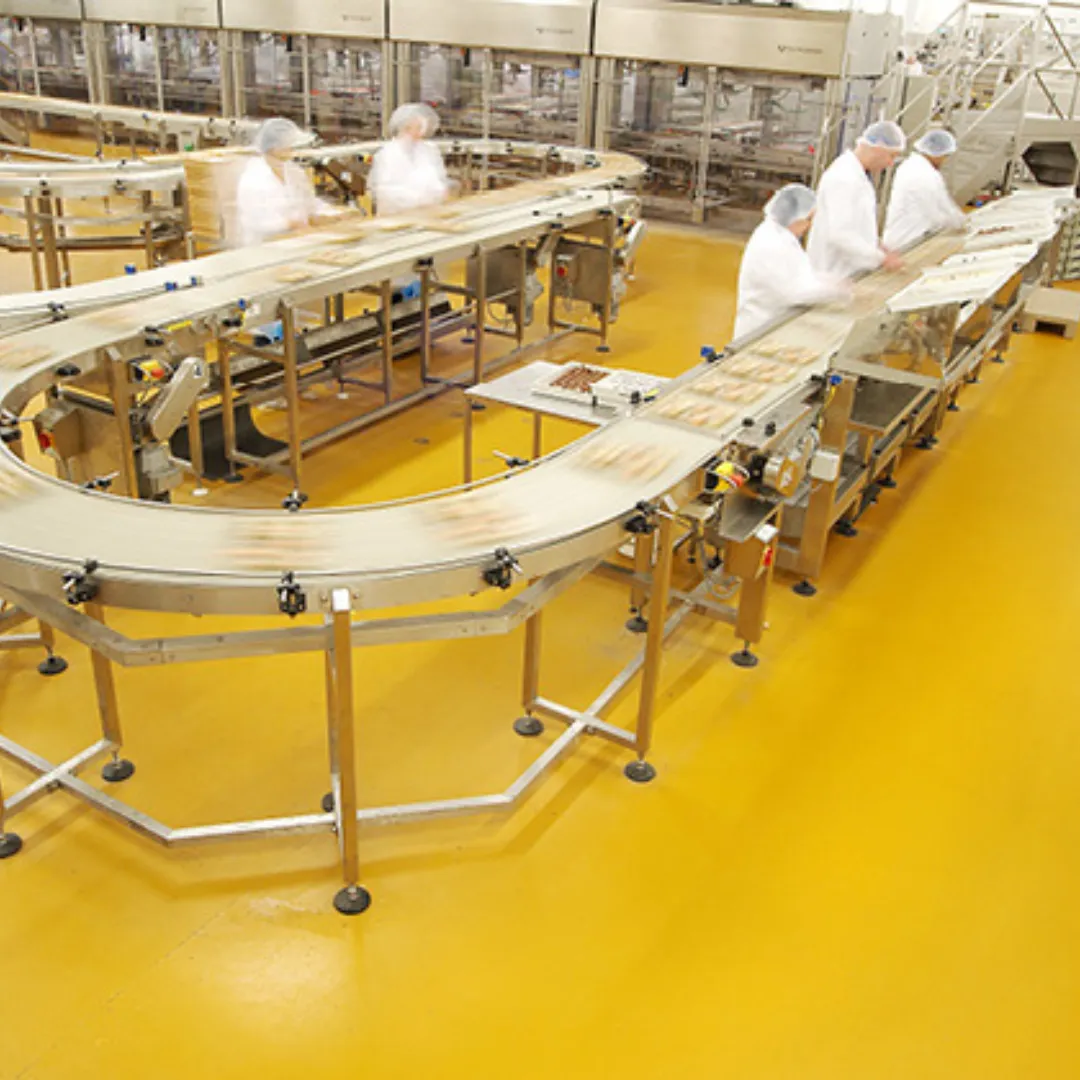
Polyurethane flooring is a flexible and high-performance coating ideal for areas exposed to heavy mechanical and chemical loads.
Advantages
- More flexible than epoxy (absorbs vibration)
- Excellent resistance to thermal shock
- Suitable for wet or temperature-controlled areas
- UV-resistant (won’t discolor easily)
Applications
Food processing units, beverage bottling plants, cold storage rooms.
Cost
PKR 800 – 1,500 per sq. ft.
3. Concrete Flooring with Hardener
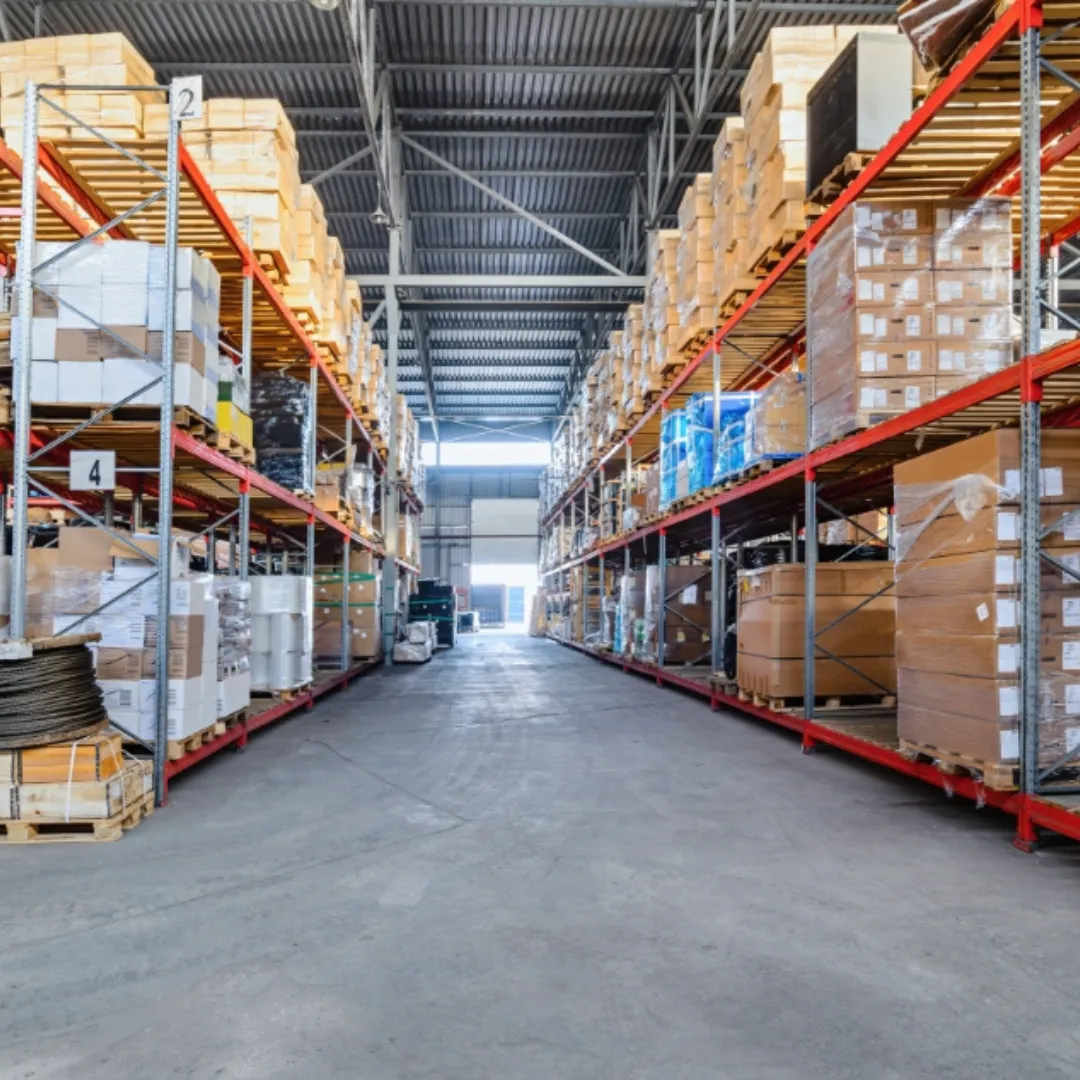
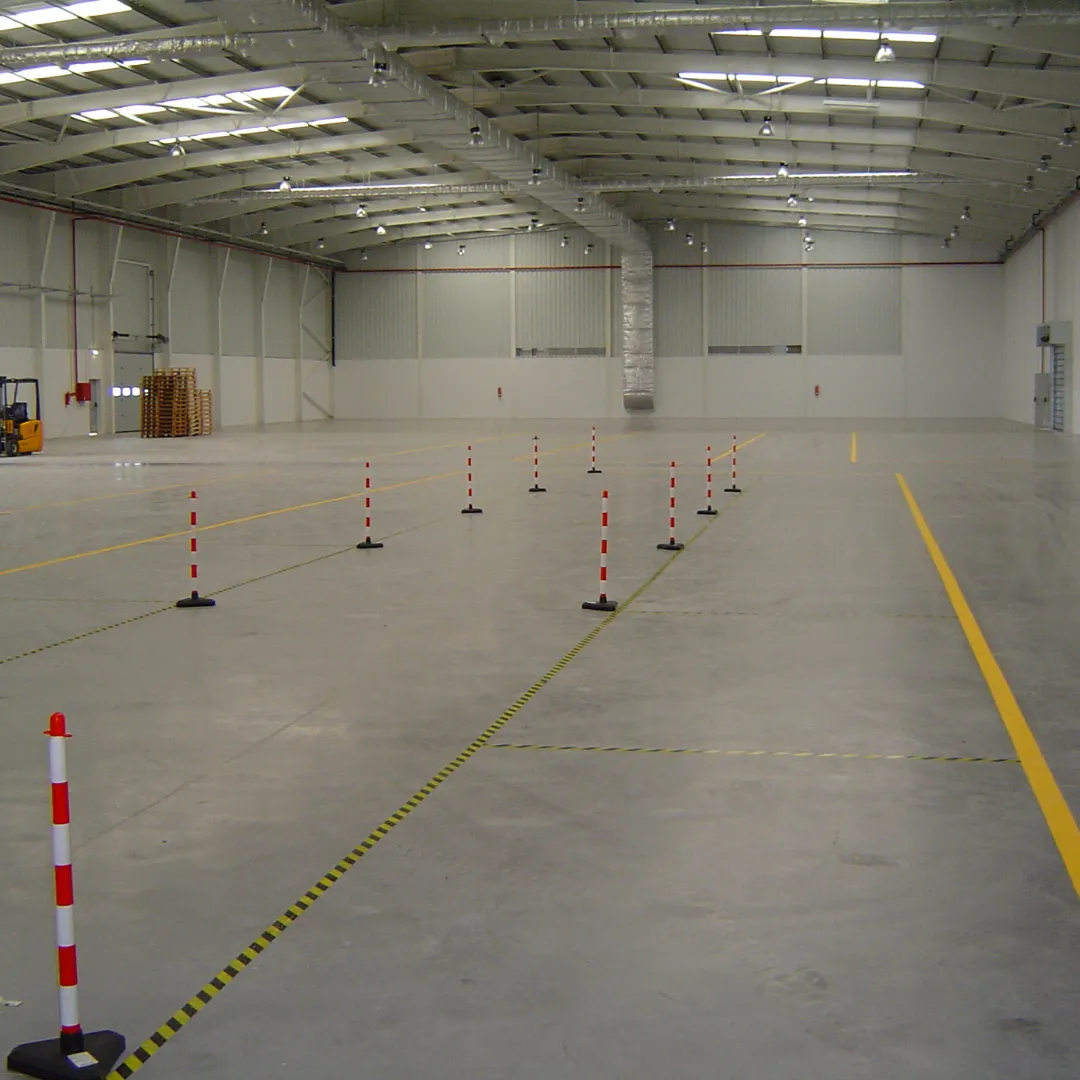
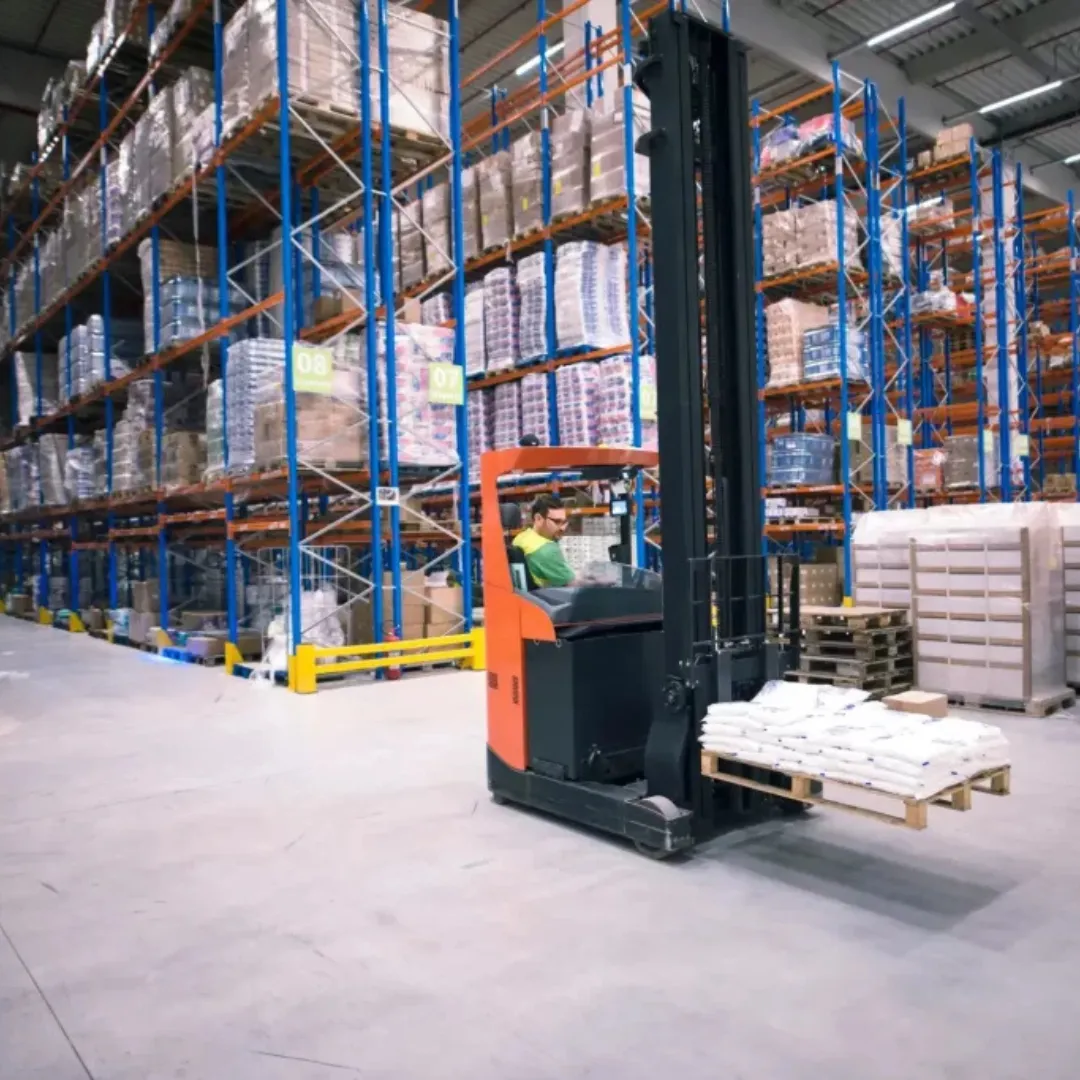
For budget-conscious industries, concrete flooring with surface hardeners remains a reliable choice.
Benefits
- Cost-effective
- Durable and long-lasting
- Can handle heavy loads
Limitations
- Not chemical-resistant
- Porous — needs sealing to prevent dusting and moisture absorption
Cost
PKR 300 – 600 per sq. ft.
4. Vinyl Flooring
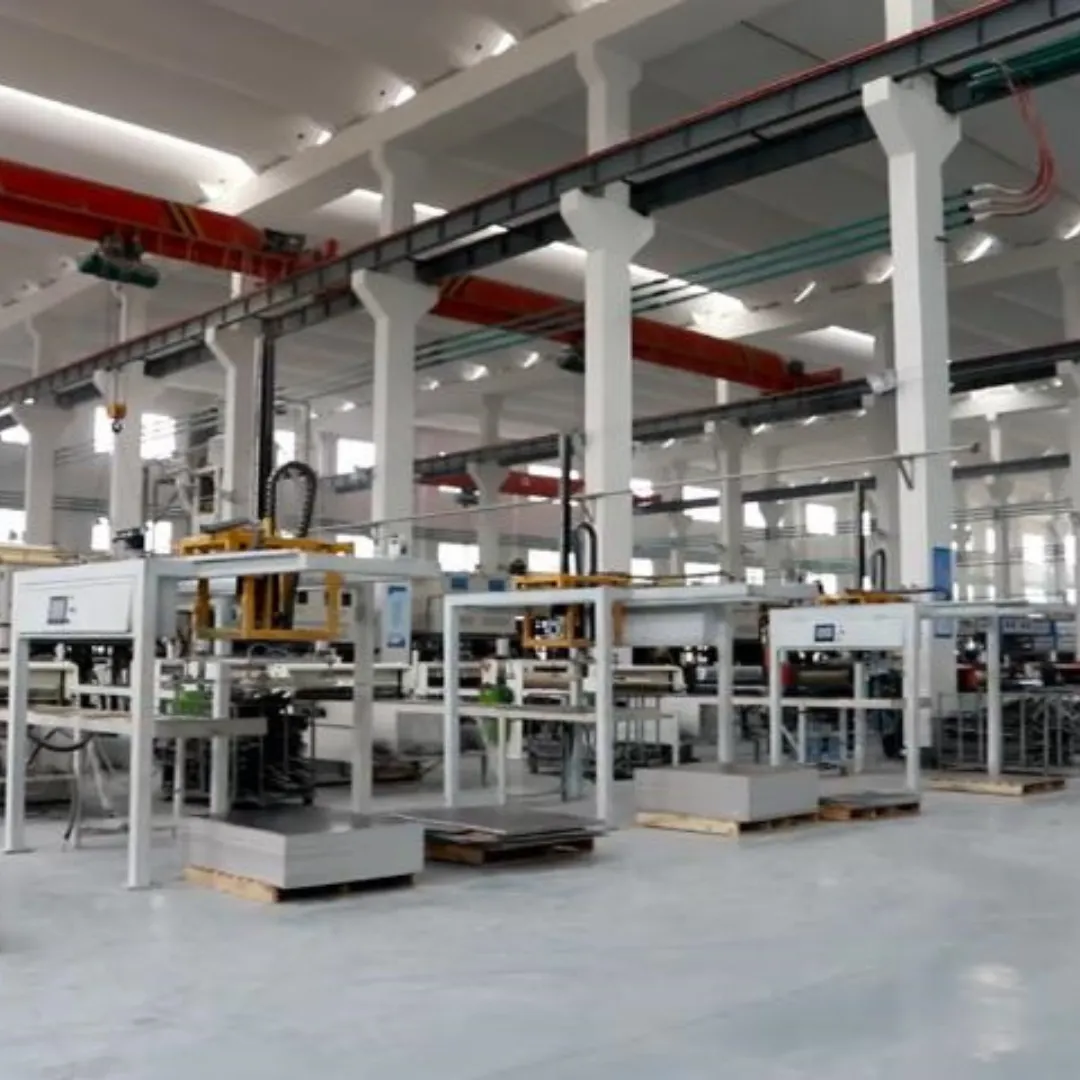
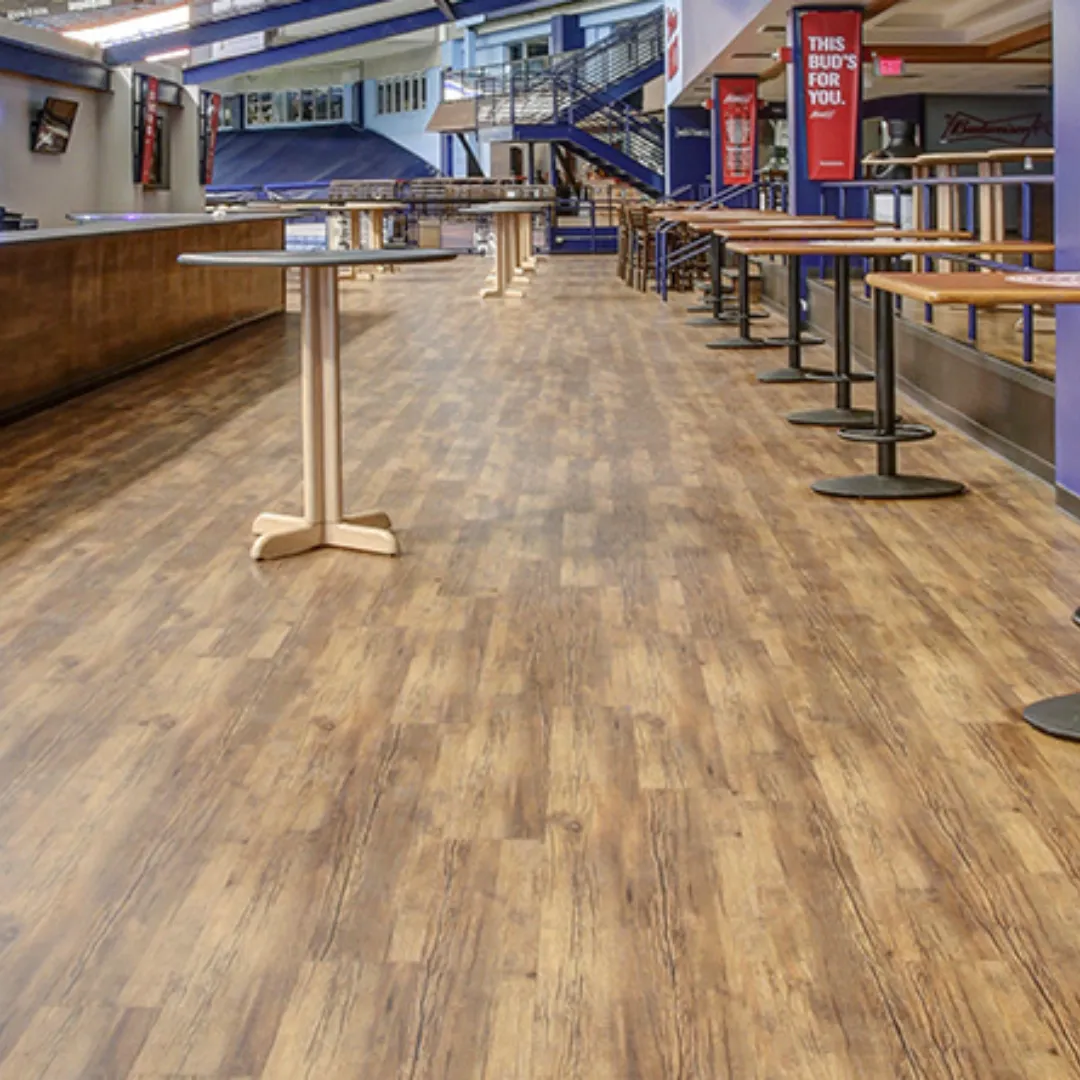
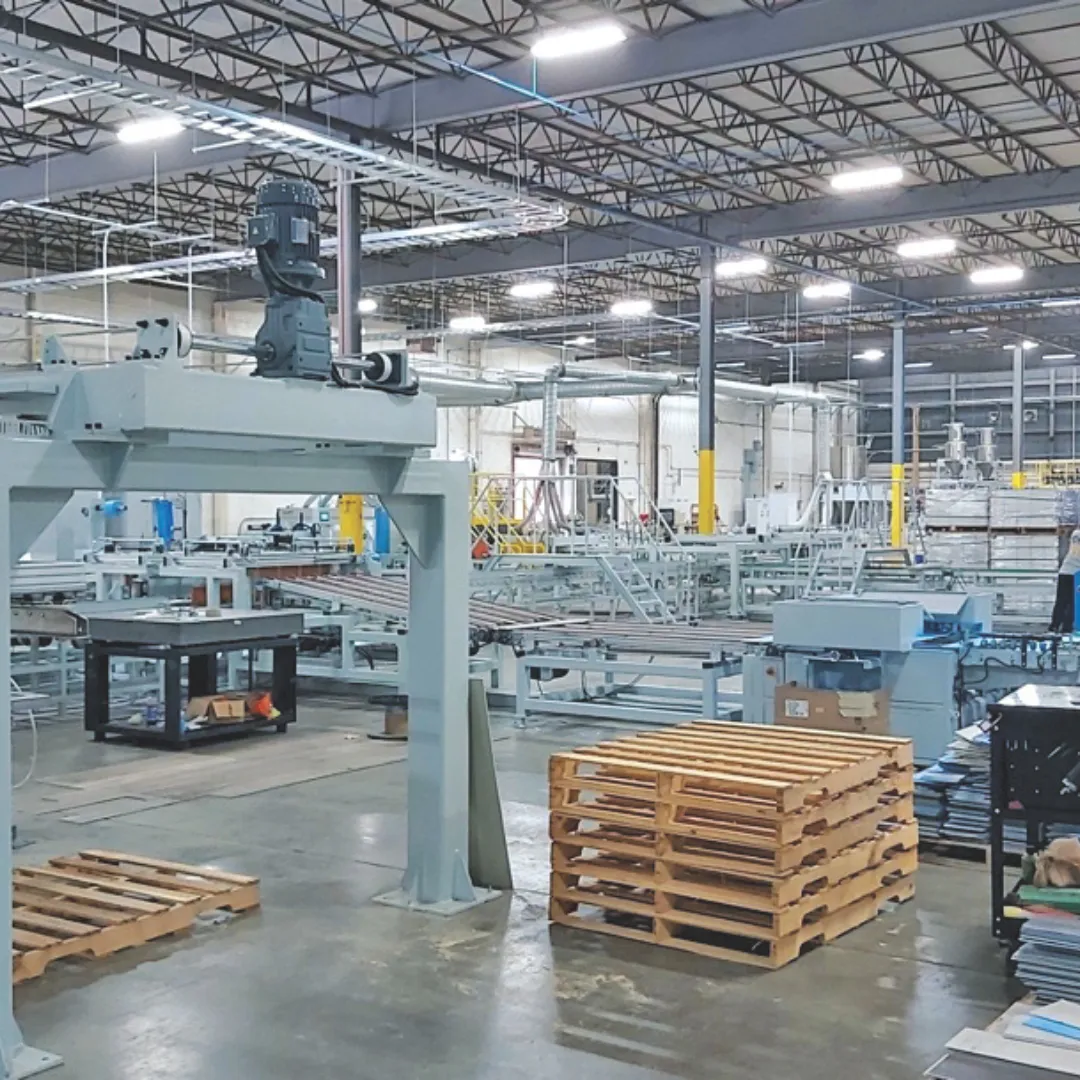
Vinyl flooring is a great option for light-duty production areas requiring hygiene and comfort underfoot.
Features
- Smooth and non-porous surface
- Available in tiles or sheets
- Easy to clean and replace
Applications
Pharmaceutical packaging zones, electronics assembly rooms, laboratories.
Cost
PKR 450 – 900 per sq. ft.
5. Anti-Static (ESD) Flooring
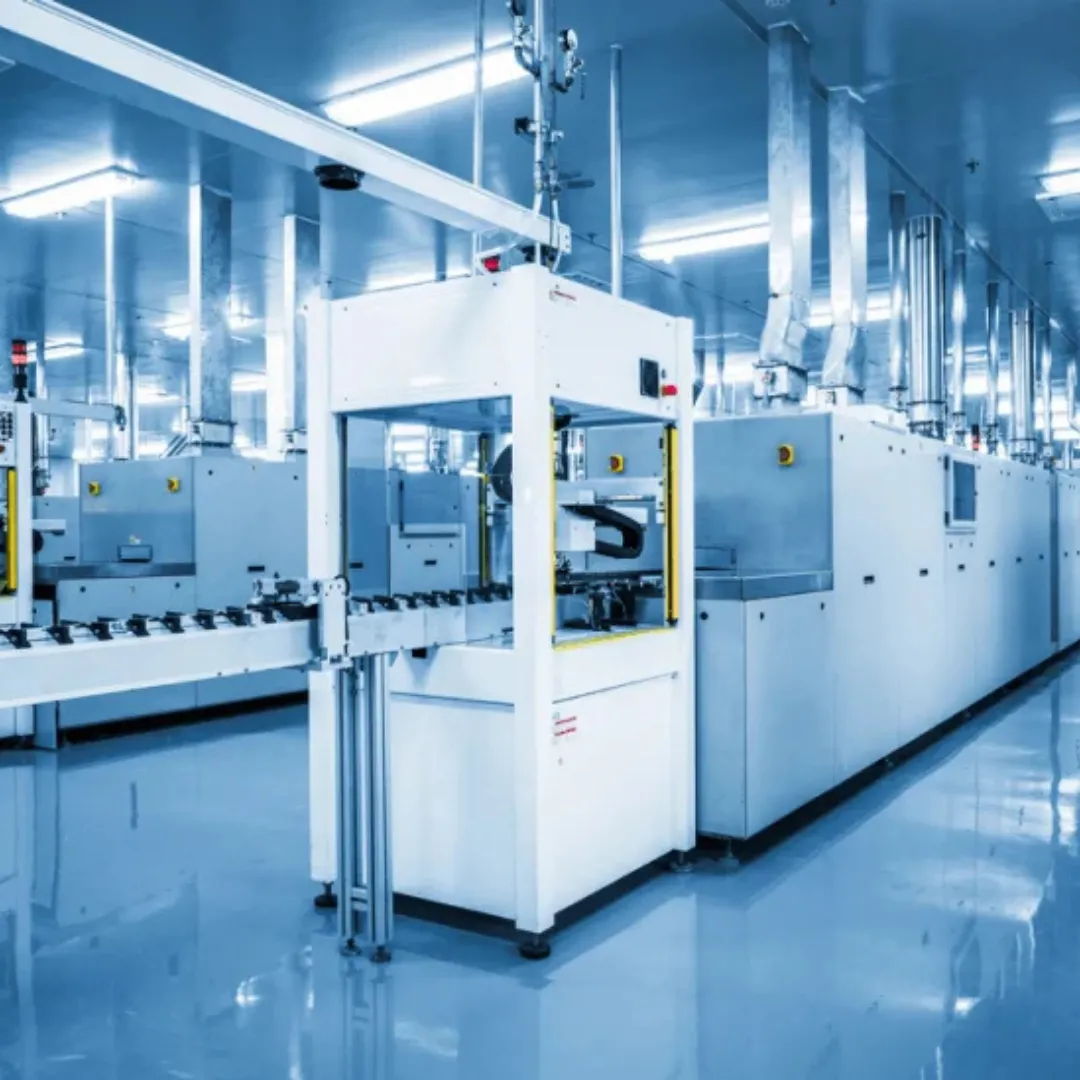
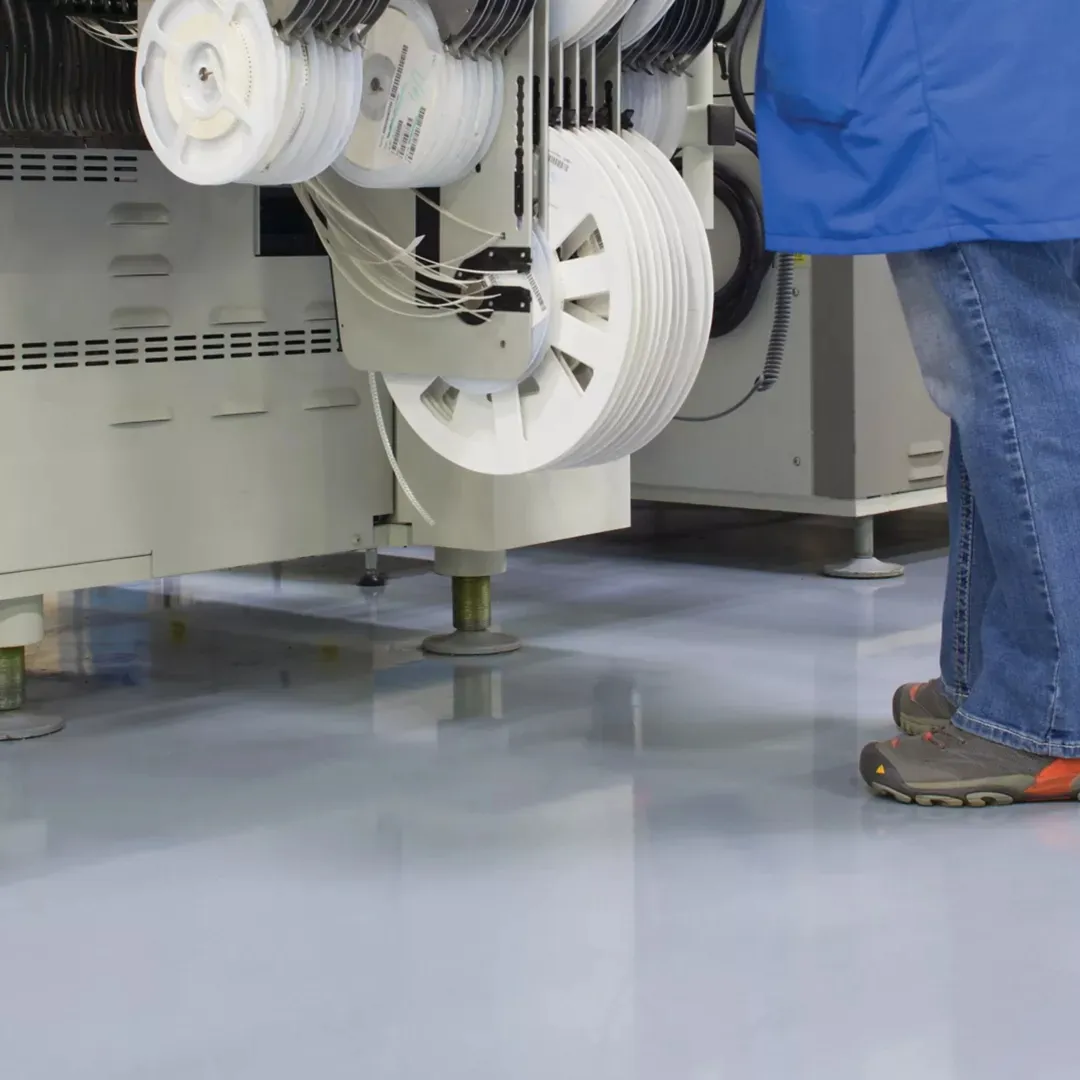
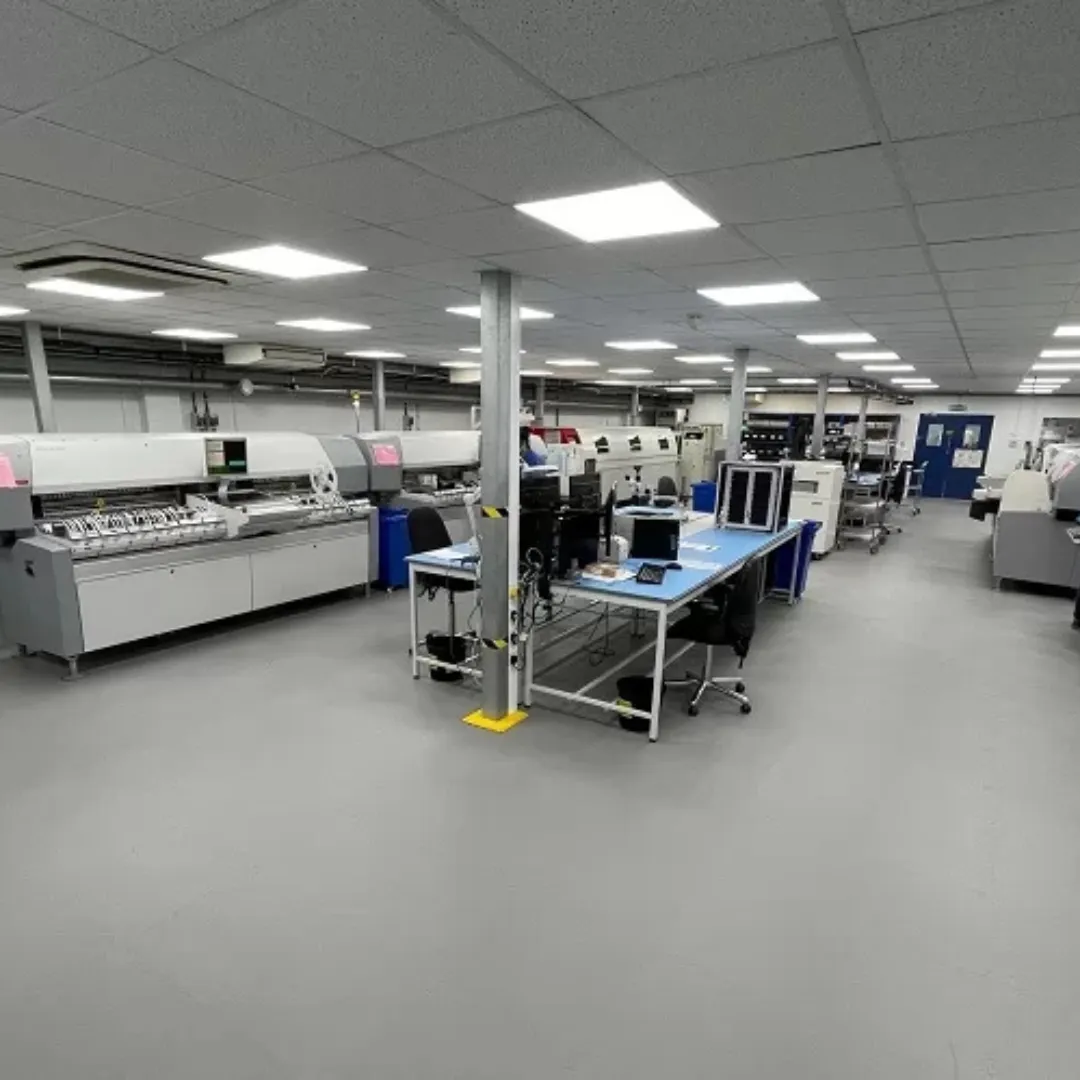
In electronic and semiconductor industries, electrostatic discharge (ESD) can damage sensitive components.
ESD flooring helps control static electricity and prevent product loss.
Features
- Conductive or dissipative surface
- Seamless and durable
- Compatible with epoxy or vinyl base
Applications
Electronics manufacturing, battery plants, data centers.
Cost
PKR 1,000 – 2,000 per sq. ft.
6. Anti-Slip Flooring
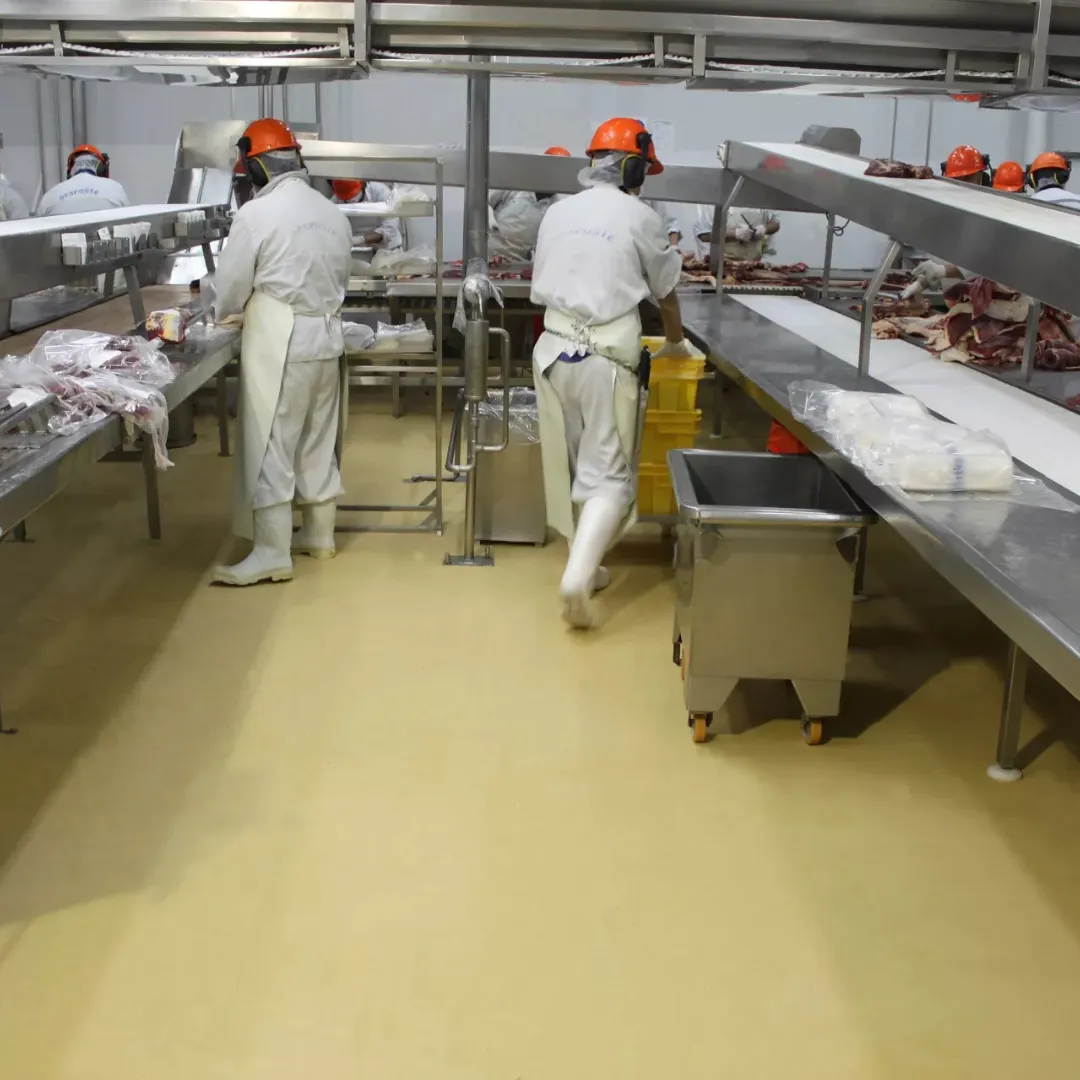
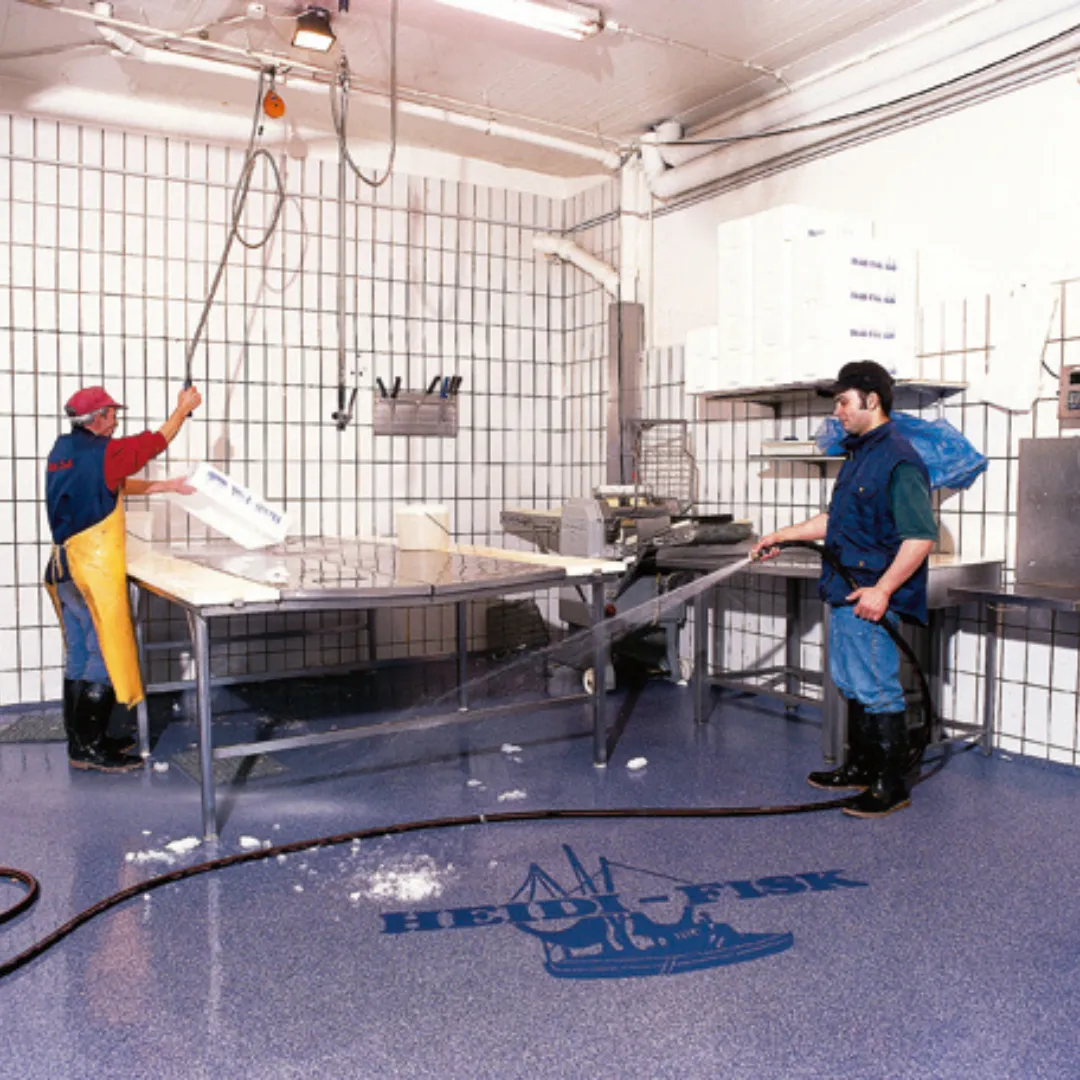
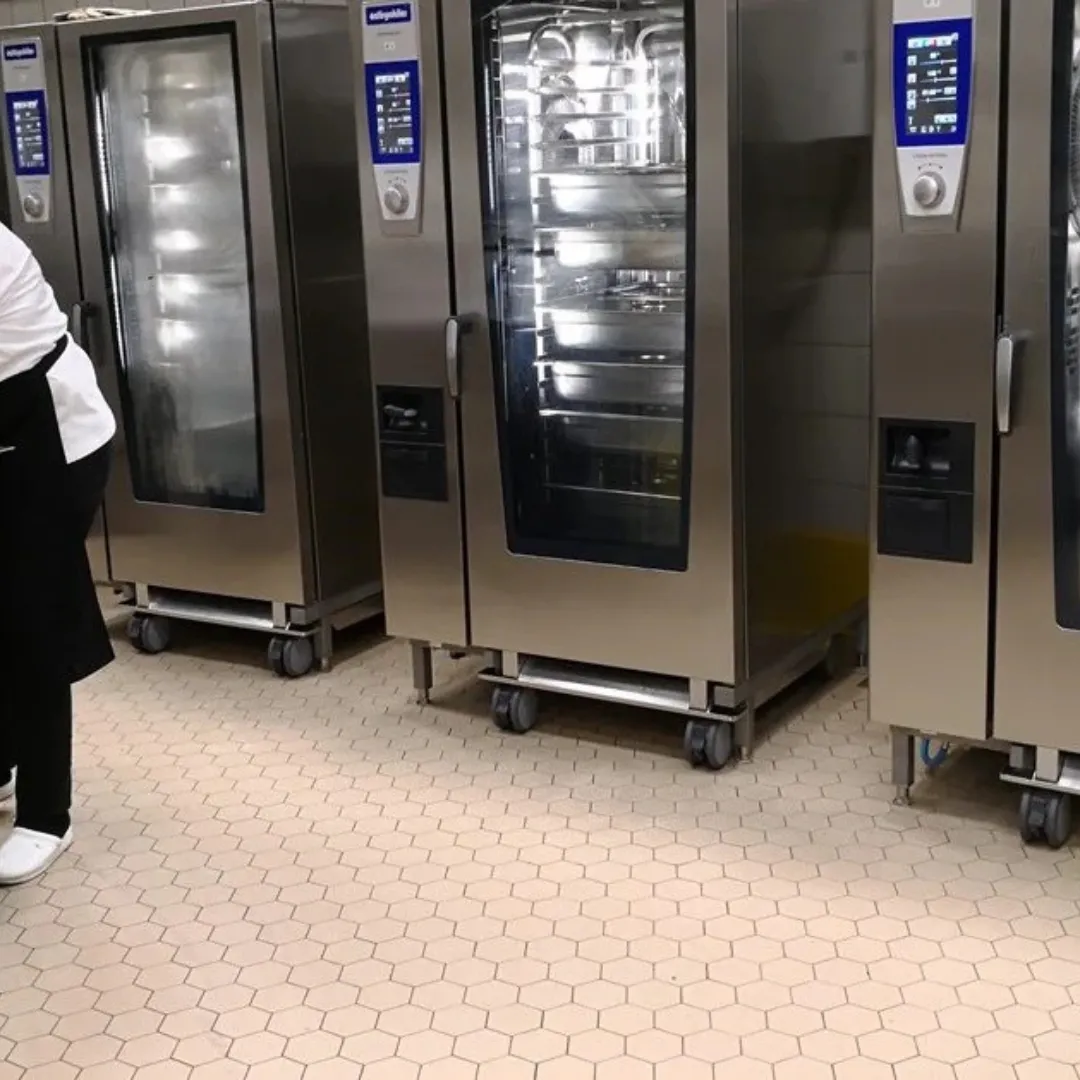
Safety is paramount in production areas where spills or liquids are common. Anti-slip coatings or textured epoxy surfaces minimize accident risks.
Applications
Food and beverage industries, chemical processing plants.
Cost
PKR 600 – 1,200 per sq. ft.
7. Hygienic Flooring Systems
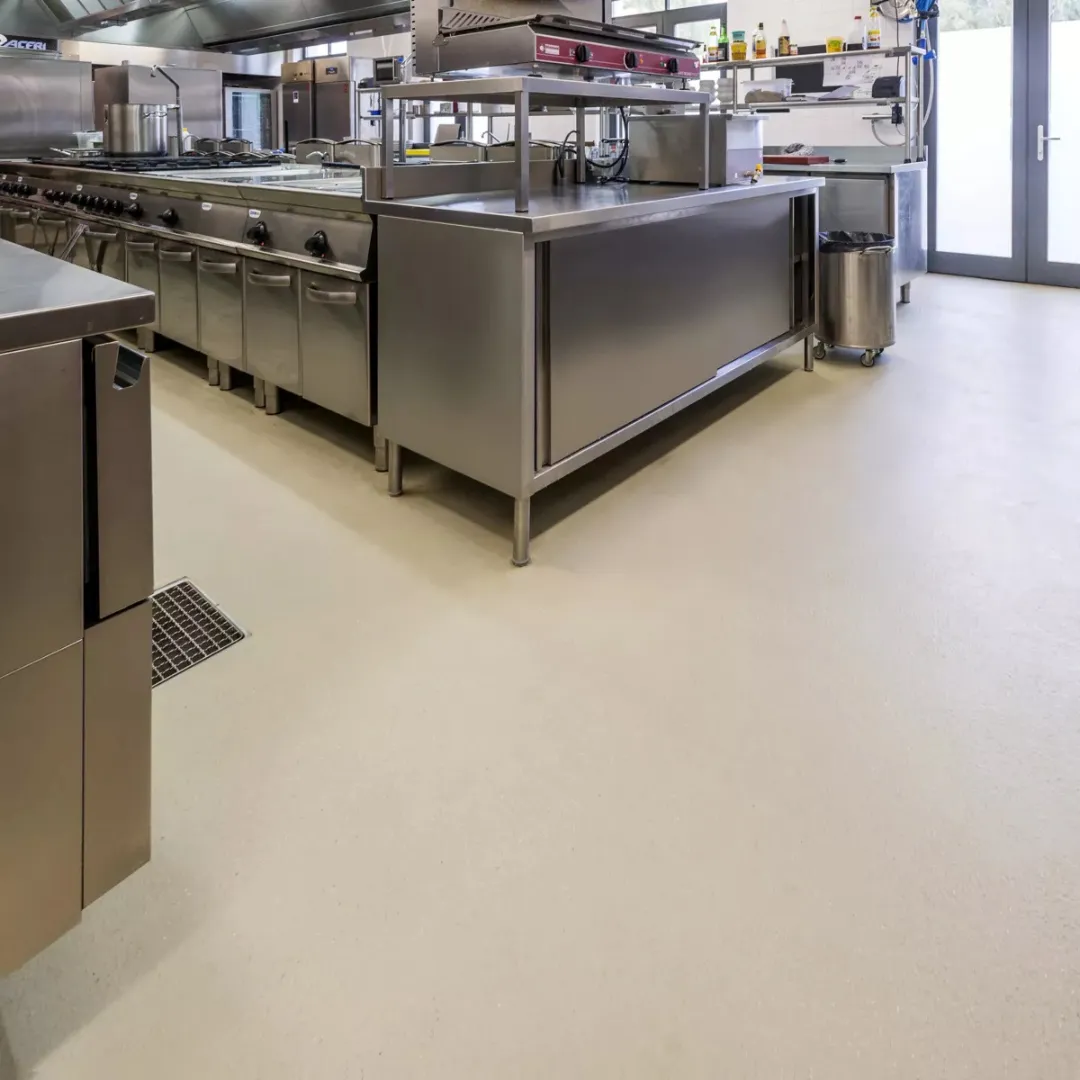
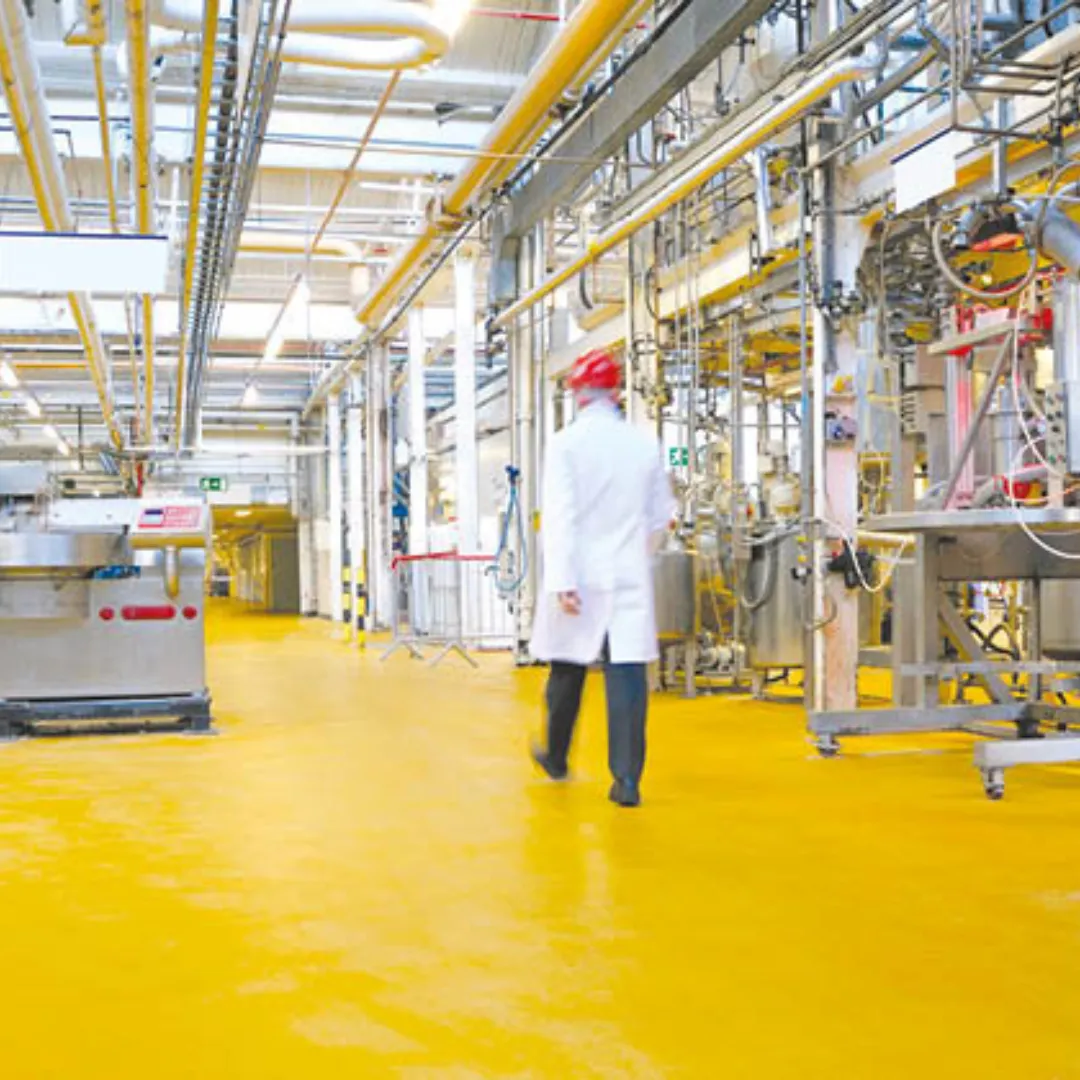
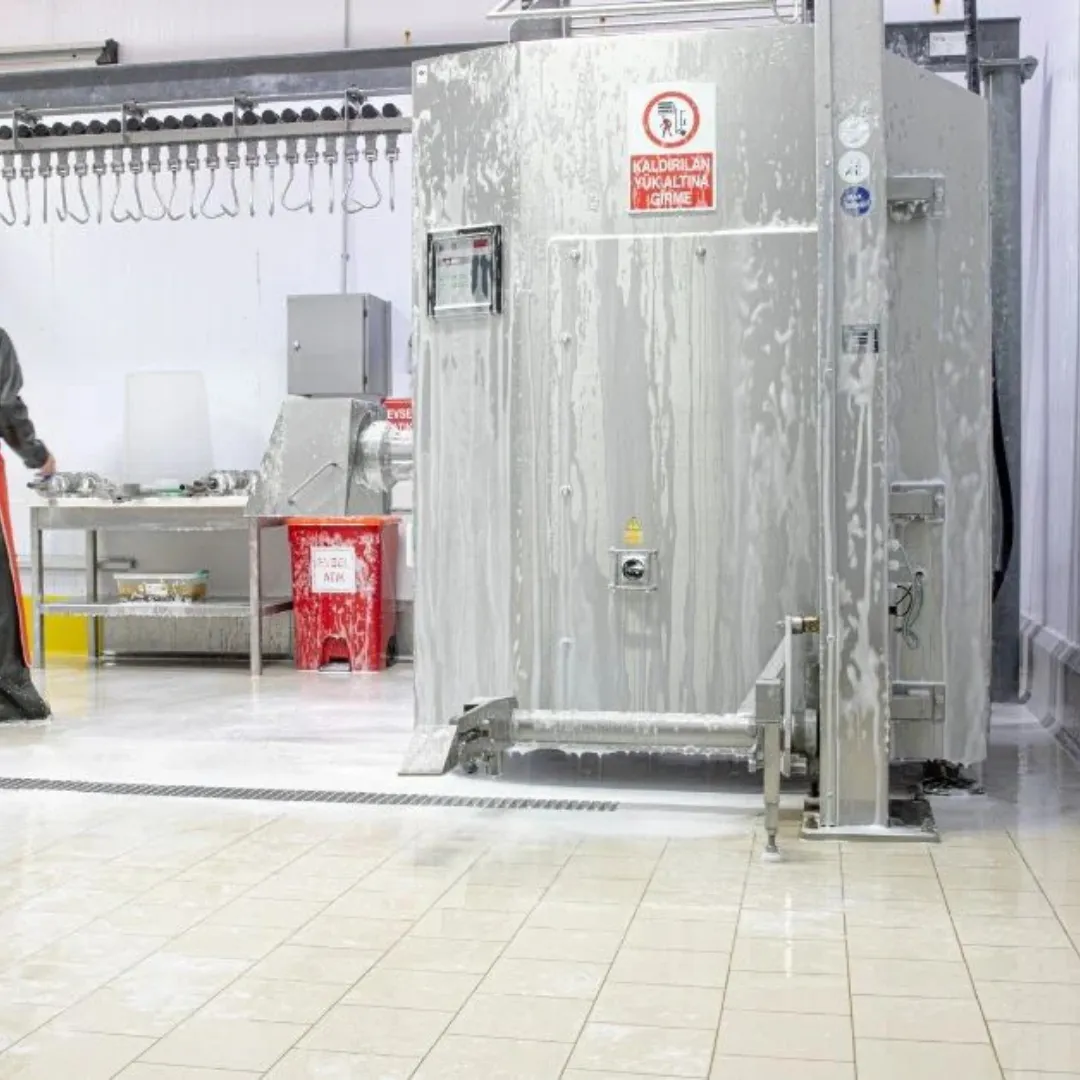
In industries like pharmaceuticals and food processing, hygiene is crucial. These flooring systems use anti-bacterial coatings and coved skirting to eliminate dirt traps.
Features
- Seamless and joint-free
- Resistant to microbial growth
- Easy to sanitize
Applications
Hospitals, pharmaceutical production, food industries.
Cost
PKR 800 – 1,600 per sq. ft.
Factors to Consider When Choosing Production Area Flooring
When selecting flooring for your industrial facility in Pakistan, consider the following:
| Factor | Importance | Explanation |
|---|---|---|
| Load Bearing | High | Can the floor handle machinery weight and traffic? |
| Chemical Resistance | High | Exposure to acids, solvents, and oils |
| Hygiene | Medium to High | Important for food and pharma |
| Maintenance | Medium | Easy cleaning and low downtime |
| Safety | High | Slip-resistant and anti-static |
| Temperature Resistance | Medium | Especially for cold or hot zones |
| Budget | Variable | Depends on material and thickness |
Production Area Flooring Installation Process
Proper installation ensures performance and longevity. Here’s the typical epoxy/PU flooring application process used in Pakistan:
Surface Preparation
- Grinding, shot blasting, or scarifying the concrete base
- Removing oil, dust, and loose particles
Crack and Joint Filling
Sealing cracks and surface imperfections
Primer Application
Applying epoxy or PU primer to enhance adhesion
Base Coat
Pouring or rolling the resin mixture evenly
Intermediate Layer (if required)
Adding quartz sand or pigments for strength and texture
Top Coat
Applying the final glossy or matte layer
Curing
Letting it harden for 24–48 hours before heavy use
Cost Factors for Production Area Flooring in Pakistan
| Cost Factor | Impact on Price |
|---|---|
| Flooring Type | Major cost driver (Epoxy, PU, Vinyl) |
| Surface Condition | Grinding, leveling, and crack filling add cost |
| Thickness | Thicker coatings = longer life, higher cost |
| Area Size | Larger area reduces per sq. ft. cost |
| Environment | Temperature, humidity, and chemical exposure |
| Additional Features | ESD, anti-slip, and antibacterial layers increase cost |
Maintenance Tips for Long-Lasting Industrial Floors
A well-maintained production floor can last 10+ years. Follow these best practices:
➡ Regular sweeping and cleaning with neutral pH cleaners
➡ Avoid dragging sharp or heavy objects
➡ Repair cracks immediately to prevent spread
➡ Apply sealant or top coat every few years
➡ Maintain temperature and humidity in controlled zones
Popular Flooring Solutions in Pakistan by Industry
| Industry | Recommended Flooring Type |
|---|---|
| Food & Beverage | PU or Hygienic Epoxy |
| Pharmaceutical | Antibacterial Epoxy or Vinyl |
| Textile | Epoxy or Hard Concrete |
| Automotive | Heavy-duty Epoxy |
| Electronics | ESD Epoxy or Vinyl |
| Chemical | Chemical-resistant PU |
| Cold Storage | PU Cement Flooring |
Leading Production Flooring Providers in Pakistan
Some of the reputed names offering industrial and production area flooring solutions in Pakistan. Unicorn Flooring is one of the leading industrial and production area flooring services provider in Pakistan. Local flooring contractors specializing in epoxy, PU, and concrete coatings. We offer material supply and professional installation services for factories, warehouses, and industrial plants across Lahore, Karachi, Islamabad, Faisalabad, and beyond.
Comparison: Epoxy vs PU Flooring for Production Areas
| Feature | Epoxy Flooring | PU Flooring |
|---|---|---|
| Flexibility | Rigid | Flexible |
| Chemical Resistance | Excellent | Excellent |
| Thermal Shock Resistance | Moderate | High |
| Cost | Lower | Slightly higher |
| Finish | Glossy | Satin or matte |
| Application | Dry areas | Wet/temperature-sensitive areas |
Verdict
- For dry, high-traffic production zones — go for Epoxy.
- However, wet or temperature-varying environments — PU flooring performs better.
Challenges in Industrial Flooring in Pakistan
Despite growing demand, industries often face these challenges:
- Lack of surface preparation before installation
- Use of low-quality materials
- Improper mixing ratios during epoxy application
- Insufficient curing time
- Moisture problems under concrete slabs
Choosing a qualified applicator and premium materials can prevent these issues.
Future Trends in Industrial Flooring (Pakistan 2025 and Beyond)
Eco-friendly flooring systems using low-VOC resins.
Smart coatings with antibacterial and anti-static properties.
Self-leveling epoxy for seamless, mirror-like finishes.
Rapid-cure systems that reduce downtime for industries.
Customization with safety lines, logos, and color-coded zones.
These innovations will continue to transform Pakistan’s industrial flooring sector, especially in CPEC-linked manufacturing zones and export-oriented industries.
Common Problems and Their Solutions
| Problem | Cause | Solution |
|---|---|---|
| Cracks in flooring | Poor surface preparation | Proper grinding & priming |
| Peeling or bubbling | Moisture under slab | Moisture barrier before coating |
| Slippery surface | Glossy finish without texture | Add anti-slip additives |
| Staining | Chemical spill | Apply chemical-resistant top coat |
| Uneven surface | Improper leveling | Use self-leveling compounds |
Conclusion
Production area flooring plays a vital role in ensuring operational efficiency, worker safety, and product quality. In Pakistan’s evolving industrial sector, investing in high-quality flooring is no longer a luxury — it’s a necessity.
From epoxy and PU coatings to anti-static and hygienic systems, the options are diverse. The key is choosing the right material for your specific industry, environment, and budget — and ensuring proper installation by trained professionals.
With the right flooring solution, you can extend the life of your production area, minimize downtime, and create a safe, clean, and efficient workspace for years to come.
FAQ'S
Epoxy and PU flooring are most popular due to their durability, hygiene, and resistance to chemicals and wear.
With proper maintenance, epoxy flooring can last 10–15 years in production areas.
Yes, but the old surface must be ground, cleaned, and primed to ensure adhesion.
PU is more flexible and temperature-resistant, while epoxy is more affordable and rigid. The choice depends on your environment.
Depending on area size and layers, installation can take 2–5 days including curing time.
Yes — hygienic epoxy and PU systems meet GMP and HACCP standards.
